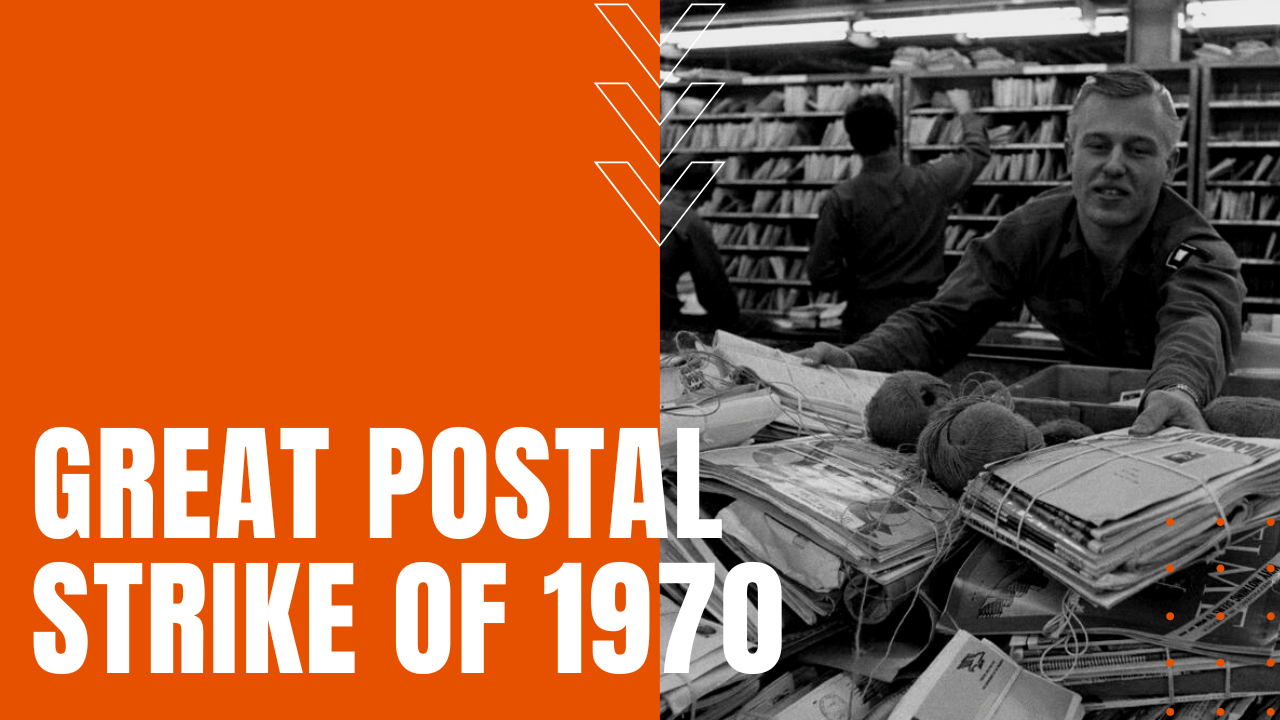Great Postal Strike of 1970

By the end of the 1960s, pay raises for postal workers were virtually nonexistent, rising by a scant $2,266 dollars after 21 years of employment, despite the physical demands of the job, which led to turnover rates of 23 percent every five years.
Congress Raise Inequality
Tensions reached a boiling point, however, after Congress proposed a 41 percent pay raise in congressional salaries, while their proposed increase for postal worker pay clocked in at a dismal 5.4 percent.
Postal Workers Strike
In response, letter carriers in New York called for a strike on March 17th, 1970, and when union bosses from the National Association of Letter Carriers refused to strike on grounds that it was illegal for federal workers to do so, a group of New York pro-strike postal workers led by Vincent Sombrotto defied union management and walked off their jobs the following morning.
As letter carriers took to picket lines in Manhattan, some 150,000 to 200,000 postal workers in 30 other cities followed suit, making the event the largest walkout of federal employees in U.S. history, at the same time freezing the delivery of some 270 million pieces of mail a day.
USPS Pivotal in American Economy
In an age before the Internet and e-mail, documents critical to government, finance and other industries were sidelined in postal warehouses, at the same time bringing financial hardships to poor people waiting on welfare checks, while young men fearful of being drafted into the Vietnam War were left to worry if they were about to be called up for active duty or exempted from war.
In response to the mounting logjam, President Richard M. Nixon declared a federal emergency, calling in the National Guard to deliver the mail in an effort to keep the American economy on track, and after eight days of sorting and delivering mail by inexperienced reservists, the wildcat strikers went back to work on Nixon’s promise of a retroactive pay hike of six percent, followed by an additional 8 percent after Nixon signed the Postal Reorganization Act on August 12th of that same year, making the Great Postal Strike of 1970 a time of letter-less stagnation for Americans everywhere.
